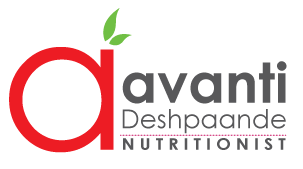People work very hard in their gym sessions to achieve their health goals. They often eat something very nutritious before the workout and loosen up on eating after the workout. But consuming the right nutrients after you exercise is just as important as what you eat before.
Why is it needed to eat after the workouts?
Let’s first understand how your body is affected by any physical activity.
When you’re working out, your muscles use up their glycogen stores for fuel. This results in your muscles being partially depleted of glycogen. Some of the proteins in your muscles also get broken down and damaged, especially in weight training. After your workout, your body tries to rebuild its glycogen stores and repair and regrow those muscle proteins.
Hence, eating right choices of food after the workouts will help your body to rebuild the stores faster.
There are two types of exercises- aerobic (also popularly known as cardio) and anaerobic (includes weight training) exercise.
Aerobic exercise makes our bodies to use glycogen and fat as a fuel. It’s called aerobic exercise as it requires oxygen while performing. Common types of aerobic exercise include running at a comfortable pace (you should be able to talk without breathing too hard), swimming, and biking.
While weight training as it works on a particular muscle, it causes muscle degeneration. It also uses glycogen as fuel.
Hence what you are eating after a particular set of exercise is very crucial and you can’t just binge on your favorite samosa chat.
WHAT TO EAT AND WHEN?
Your body’s ability to rebuild glycogen and protein is enhanced after you exercise. For this reason, it’s recommended that you consume a combination of carbs and protein as soon as possible after exercising
However, it also depends on what type of exercise you did.
If it was a cardio workout, you should be eating a meal rich in complex carbs, moderate proteins and little fat. Example for this could be a paneer sandwich or a bowl of skimmed, pasta, rice, roti, and bread, milk with muesli or oats. Even you can add fruits like banana & can add good fats like almonds – walnuts, pumpkin seeds etc..
If it was a weight training session, you must include high quality proteins with some carbs. Example, eggs with chapatti or bread, or grilled chicken with veggies or a boiled potato, boiled eggs with vegetable juice or a fruit.
The time gap between exercise and meal need not be exact, but ideally you should eat within 30-40 minutes of your exercise.
How much carbs, proteins and fats after workout?
You always need a combination of these macronutrients after workout.
Your body’s glycogen stores are used as fuel during exercise, and consuming carbs after your workout helps replenish them. You can consume carbs 1.1–1.5 grams/kg of body weight within 30 minutes after workout for proper glycogen resynthesis.
Furthermore, insulin secretion, which promotes glycogen synthesis, is better stimulated when carbs and protein both are consumed.
As we seen earlier, exercise triggers the breakdown of muscle protein. Eating good proteins post exercise, provide your body essential amino acids. These amino acids promote muscle repair and rebuild. You should eat 0.2-0.5 g of proteins per kg body weight soon after workout depending on the intensity.
Make Sure to Drink Plenty of Water
During exercise, you lose water and electrolytes through sweat. Replenishing these after a workout can help with recovery and performance.
When you are properly hydrated, it helps your body to maximize the results. Hence, it is important to drink plenty of water before and after your workout.
Depending on the intensity of your workout, water or an electrolyte drink are recommended to replenish fluid losses.
To know more about this , go to my you tube channel –




